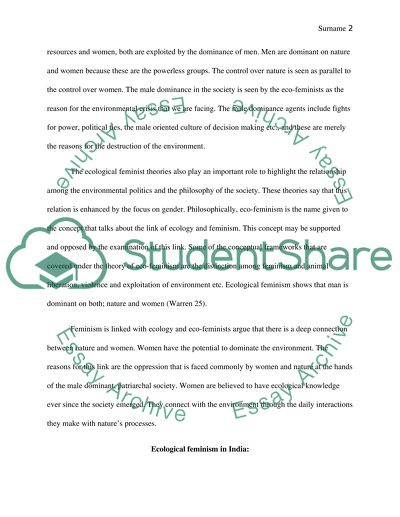Cite this document
(“Religion, Feminism, and Environmentalism Essay Example | Topics and Well Written Essays - 1250 words”, n.d.)
Retrieved from https://studentshare.org/religion-and-theology/1468098-religion-feminism-and-environmentalism
Retrieved from https://studentshare.org/religion-and-theology/1468098-religion-feminism-and-environmentalism
(Religion, Feminism, and Environmentalism Essay Example | Topics and Well Written Essays - 1250 Words)
https://studentshare.org/religion-and-theology/1468098-religion-feminism-and-environmentalism.
https://studentshare.org/religion-and-theology/1468098-religion-feminism-and-environmentalism.
“Religion, Feminism, and Environmentalism Essay Example | Topics and Well Written Essays - 1250 Words”, n.d. https://studentshare.org/religion-and-theology/1468098-religion-feminism-and-environmentalism.


